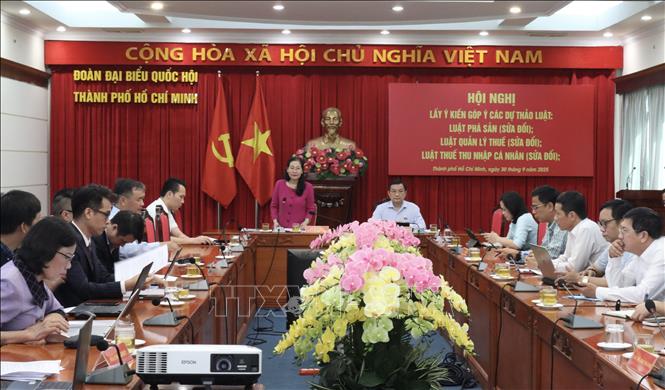
Mr. Le Khanh Lam, Vice President of the Ho Chi Minh City Tax Consultants and Agents Association, said that the Draft Law on Personal Income Tax had been consulted by the Ho Chi Minh City Tax Consultants and Agents Association with experts, scientists and business representatives to perfect the policy, ensure fairness and suitability with socio -economic realities.
Accordingly, regarding the family deduction level, the majority of opinions agree that the Government should be given the right to adjust it periodically, linked to fluctuations in the consumer price index (CPI) and socio-economic factors. The proposed starting level is 18 million VND/year for taxpayers, and for dependents, it ranges from 7.5 to 18 million VND/year depending on the plan. Some opinions say that the living expenses of dependents are equivalent to those of taxpayers, so it should be calculated at 100%.
Regarding medical and educational expenses, the draft allows for deductions, which are highly appreciated for their humanity. However, many opinions suggest limiting them to the taxpayer and their direct dependents to avoid abuse, while expanding them to include rental expenses and some other essential expenses.
Regarding the tax schedule, many opinions agree to remove the 35% tax rate and keep the maximum at 30% to increase competitiveness and limit tax evasion and transfer pricing. Regarding the number of levels, the 5-level option is supported, in which the gap at lower levels needs to be widened. A new point that is positively evaluated is the exemption of personal income tax for scientists participating in research from the state budget. However, experts suggest expanding it to the fields of health, education, digital transformation and research tasks from socialized sources, to ensure fairness and encourage innovation.
For business households, the proposed non-taxable revenue level is raised from VND200 million/year to VND350-400 million. Some opinions expect this level to be higher, from VND500 million to VND1 billion/year, to ensure equality with salaried workers and to be consistent with the e-invoice policy.
Regarding capital and securities investment, experts believe that it is necessary to distinguish between short-term, medium-term and long-term investments; and to give incentives to long-term investments to encourage stable capital flows. Regarding securities, it is necessary to separate the underlying products and derivatives so that the policy reflects its true nature. In addition, many opinions suggest tax exemption for poor households transferring long-term house lease rights, similar to the tax exemption when transferring a single house.
Regarding the Law on Tax Administration, Mr. Le Van Son, Head of the Training Department, Ho Chi Minh City Tax Consultants and Agents Association, said that the goal of building the Law is to aim for a transparent, stable and suitable system. In terms of building principles, the Law needs to fully stipulate the fundamental principles instead of giving too much guidance to the Government and the Ministry of Finance. Delegating too much authority can easily reduce transparency and make it difficult to apply immediately after the Law is issued. Principles on confidentiality, information disclosure, enforcement measures, ensuring technology safety, etc. need to be specifically stipulated in the Law.
Regarding the tax management method, the draft proposes management by taxpayer grouping. However, Mr. Le Van Son said that this model can cause resource dispersion and lack of uniformity. Mr. Son recommended continuing to maintain management by function, combining the application of data analysis technology to both classify by risk and support taxpayers to comply well. Regarding the tax management information system, Mr. Son suggested adding regulations on the function of providing, exchanging and collecting information with taxpayers; ensuring accurate and timely storage and updating of data, in order to better serve the propaganda and support of tax obligations.
Regarding the declaration of tax records, there are opinions that the draft reduces the time from 10 years to 5 years but it is not clear how to handle errors in the 6-10 year period. It is recommended to apply the "retroactive" and "non-retroactive" principles according to accounting law, allowing for additional tax and late payment fees, except in cases of fraud.
Regarding tax debt enforcement, many opinions believe that it should not be applied to enterprises whose land and mineral use rights are restricted due to state agencies, because in reality, the debt arising is beyond the taxpayer's control. In addition, the draft needs to add small enterprises to the scope of service of tax agents, business households and individuals providing tax procedure services; it is necessary to recognize both auditor certificates in addition to accountant certificates to ensure fairness and take advantage of high-quality human resources.
The business community expressed its hope that the Law on Tax Administration would become a stable legal foundation, both improving management efficiency and creating convenience and fairness for taxpayers.
Commenting at the conference, Mr. Nguyen Trung Ngan, representative of the Ho Chi Minh City Labor Federation, said that the minimum wage between urban and rural areas is quite different, reflecting the living standards and costs of different areas. Therefore, the personal income tax table and taxable income level also need to be calculated reasonably, not equal for all subjects.
Regarding the Draft Law on Bankruptcy (amended), a representative of the Ho Chi Minh City Labor Federation said that current regulations mainly prioritize debt repayment to the state budget and secured loans, while the rights of workers are only briefly mentioned. It is important to emphasize that wages are the result of labor that workers have contributed in the past but have not yet been paid. Behind each salary is also the responsibility to family, children and daily livelihood. Therefore, in the case of enterprises carrying out bankruptcy procedures but still owing wages, it is necessary to prioritize payment to workers. This is not only a way to protect the legitimate rights of vulnerable groups but also contributes to limiting the risk of collective reactions, ensuring social security and order.
Source: https://baotintuc.vn/thoi-su/nhieu-de-xuat-dieu-chinh-chinh-sach-quan-ly-thue-va-thue-thu-nhap-ca-nhan-20250930160715708.htm







![[Photo] Binh Trieu 1 Bridge has been completed, raised by 1.1m, and will open to traffic at the end of November.](https://vphoto.vietnam.vn/thumb/1200x675/vietnam/resource/IMAGE/2025/10/2/a6549e2a3b5848a1ba76a1ded6141fae)


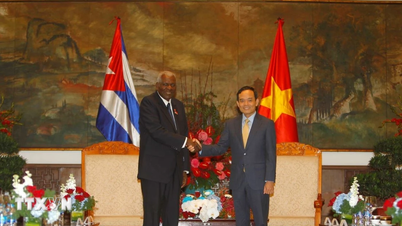




![[Photo] Binh Trieu 1 Bridge has been completed, raised by 1.1m, and will open to traffic at the end of November.](https://vphoto.vietnam.vn/thumb/402x226/vietnam/resource/IMAGE/2025/10/2/a6549e2a3b5848a1ba76a1ded6141fae)





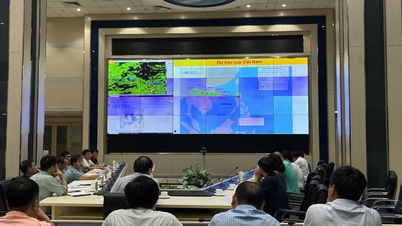
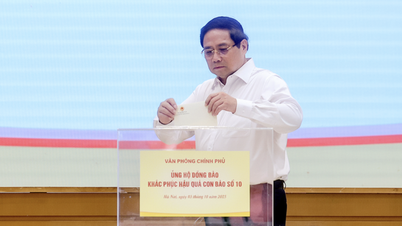








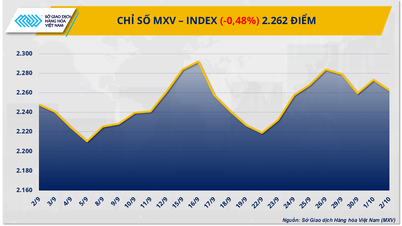


















































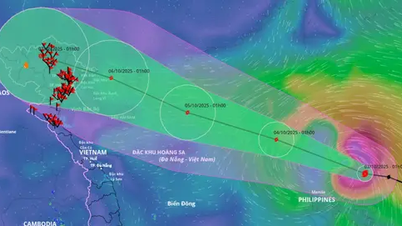















Comment (0)